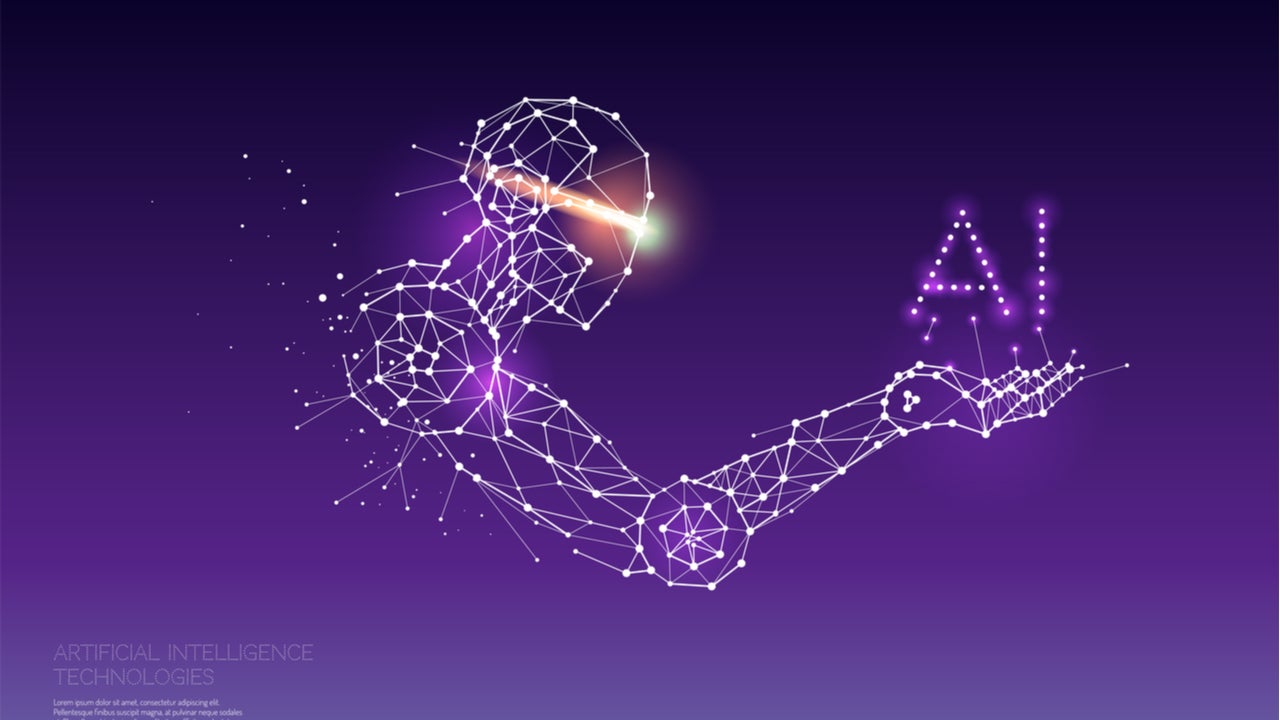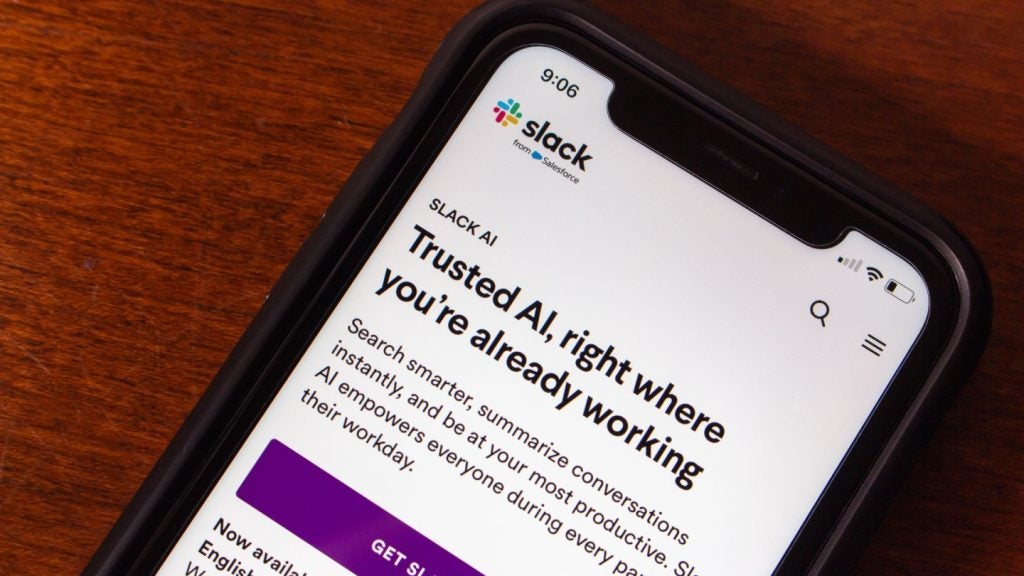
Verdict lists ten of the most popular tweets on artificial intelligence (AI) in August 2020 based on data from GlobalData’s Influencer Platform. The top tweets were chosen from influencers as tracked by GlobalData’s Influencer Platform, which is based on a scientific process that works on pre-defined parameters. Influencers are selected after a deep analysis of the influencer’s relevance, network strength, engagement, and leading discussions on new and emerging trends.
Top tweets on artificial intelligence in August 2020
1. Ronald van Loon’s tweet on Google’s neural machine translation system
Ronald van Loon, principal analyst and CEO of Intelligent World, shared a video from the World Economic Forum on a neural machine translation technology developed by Google to provide natural translation between different languages using artificial intelligence and deep learning.
The system was also used to translate two languages without using English as a bridge. It was able to develop its own language to complete the translation without using English through a technology called zero shot translation. Google believes that the computer created its own language using similarities between words to complete the translation.
Google #AI computers have created their own secret language
by @wef#IoT #ArtificialIntelligence #ML #DeepLearning #DL #InternetofThingsCc: @pawlowskimario @andy_fitze @wotnot_io @williamharvey07 @monteagudo_ai pic.twitter.com/dLP2lm0NXf
— Ronald van Loon (@Ronald_vanLoon) August 10, 2020
How well do you really know your competitors?
Access the most comprehensive Company Profiles on the market, powered by GlobalData. Save hours of research. Gain competitive edge.
 Company Profile – free sample
Company Profile – free sampleThank you!
Your download email will arrive shortly
Not ready to buy yet? Download a free sample
We are confident about the unique quality of our Company Profiles. However, we want you to make the most beneficial decision for your business, so we offer a free sample that you can download by submitting the below form
By GlobalData
Username: Ronald van Loon
Twitter handle: @Ronald_vanLoon
Retweets: 245
Likes: 427
2. Mark O. Riedl’s tweet on GPT-3 language-generation algorithm
Mark O. Riedl, associate professor at Georgia Institute of Technology, shared an article on how OpenAI is not revealing the code for its GPT-3 language-generation algorithm. GPT-3 is the latest version of the language generation algorithm and has been hailed for its ability to write like a human.
OpenAI has shared the algorithms for previous versions of the language software but has not released the algorithm for GPT-3. The company stated that the algorithm is too large and cannot be run by most people. Further, it has transformed its corporate structure from a non-profit organisation to attract investors.
Experts note that restricting access to advanced algorithms such as GPT-3 threatens the democratisation of AI, where everyone has access to AI.
I muse about some of GPT-3’s concerning implications for the democratization of AI
What does it mean for the (arguably) most powerful AI system to be locked behind an API controlled by a for-profit company? What are the implications for OpenAI?https://t.co/Ogu07cJ2Cm
— Mark O. Riedl (@mark_riedl) August 24, 2020
Username: Mark O. Riedl
Twitter handle: @mark_riedl
Retweets: 43
Likes: 166
3. Ganapathi Pulipaka’s tweet on top five advancements in AI
Ganapathi Pulipaka, chief data scientist at Accenture, shared an article on the latest advancements of AI in different fields. Contextual technology used in chatbots, increase in use of AI by graphic designers, and creation of paintings and artwork using AI were some of the top advancements mentioned in the article.
The article also notes that cloud storage can be used by AI programmes for decision making and communication. AI can also be used in the healthcare industry for detecting and predicting outbreaks and in the banking industry for automation, risk analysis and decision making on investments.
Further developments in AI should focus on avoiding robotic sound by using voice conversion technologies, the article added.
Top 5 Latest Advancements in AI. #BigData #Analytics #DataScience #AI #MachineLearning #IoT #IIoT #Python #RStats #TensorFlow #Java #JavaScript #ReactJS #CloudComputing #Serverless #DataScientist #Linux #Mathematics #Programming #Coding #100DaysofCode https://t.co/qQchlWmOdB pic.twitter.com/1ywHyXbv1e
— Dr. Ganapathi Pulipaka (@gp_pulipaka) August 19, 2020
Username: Ganapathi Pulipaka
Twitter handle: @gp_pulipaka
Retweets: 92
Likes: 43
4. Sally Eaves’s tweet on machine learning data clusters
Sally Eaves, official member of the Forbes Technology Council, shared an article on a new tool called Allox developed by Stony Brook University that can make ML models fairer and faster. Allox can plan high volumes of ML jobs in data centres fairly and ensure an average completion time of up to 95% when the system load is high.
The Allox system comprises of three components including an estimator, a scheduler, and a placer. The components together determine the appropriate hardware required for a particular job and how to fit it fairly into the hardware that is available.
Making #MachineLearning #Training models fairer & faster New #research and progress https://t.co/oQABeyoymv @UMichCSE #AI #futureofwork #ML #100DaysOfCode #innovation #Sunday #DeepLearning #tech #developer #learning
@chatbot_the @andi_staub @DeepLearn007 @Jon__air @moingshaikh pic.twitter.com/KOrdtszUmx— Dr. Sally Eaves (@sallyeaves) August 9, 2020
Username: Sally Eaves
Twitter handle: @sallyeaves
Retweets: 68
Likes: 68
5. Mario Pawlowski’s tweet on new AI software capable of detecting shoplifting
Mario Pawlowski, the CEO of iTrucker, a logistics and supply chain-related company, shared a video on Vaakeye, an AI software that can detect shoplifting before it occurs. The software detects suspicious activities of shoppers based on body language, gait and clothing choices and alerts staff through an app.
Vaakeye was trained using more than 100,000 hours of surveillance data and was able to spot suspicious activities based on shopper’s behaviour. The system has helped in reducing shoplifting cases by 77% in stores where it is currently being tested in Japan.
#AI now can hunt for the #shoplifters.@mashable MT @MikeQuindazzI #FacialRecognition #AIEthics #IoT #ML #MI #DeepLearning #FinTech #MachineVision #4IR #Megatrends @Nicochan33 @Droit_IA @mvollmer1 @jblefevre60 @MargaretSiegien @enricomolinari @ShiCooks pic.twitter.com/rGwhQ7h50d
— Mario Pawlowski 🇵🇱🇺🇸🇪🇺🌎⚽️ (@PawlowskiMario) August 28, 2020
Username: Mario Pawlowski
Twitter handle: @PawlowskiMario
Retweets: 59
Likes: 66
6. Spiros Margaris’ tweet on AI and human perception
Spiros Margaris, a venture capitalist, and founder of Margaris ventures, shared an article on the problems in the current methods used to evaluate the effectiveness of deep learning in processing visual data. A study conducted by German universities has focused on three areas including contour detection, abstract visual reasoning, and recognition gap to compare how humans and deep neural networks process visual data.
Based on the results, researchers concluded that it is hard to compare AI and human perception due to the internal human interpretation bias. Appropriate analysis tools, generalisation tests, and adversarial examples can help in rationalising the interpretation of findings and avoid human bias, the article noted.
Computer vision: Why it’s hard
to #compare #AI and #human perception https://t.co/sMTcEWu6Wp #fintech #ArtificialIntelligence #MachineLearning #DeepLearning #ComouterVision @bendee983 @bdtechtalks @KirkDBorne @sallyeaves @ahier @HaroldSinnott @DioFavatas @Paula_Piccard pic.twitter.com/hWprYpP6De
— Spiros Margaris (@SpirosMargaris) August 10, 2020
Username: Spiros Margaris
Twitter handle: @SpirosMargaris
Retweets: 44
Likes: 53
7. Kirk Borne’s tweet on the impact of emerging technologies on various industries
Kirk Borne, principal data scientist and executive advisor at Booz Allen Hamilton, an IT consulting firm, shared an article on how emerging technologies such as AI, Internet of Things (IoT), blockchain and virtual/augmented reality (VR/AR) are impacting various industries.
The article provides examples of how these technologies are being implemented in sectors such as real estate, healthcare, finance and insurance, retail, transport, and more. In real estate, for example, AI is helping in building property evaluation, while VR/AR is helping in providing virtual property tours for buyers.
How #EmergingTechnologies Are Impacting Industries: https://t.co/jSFqwuXt8D
———————#BigData #DataScience #AI #MachineLearning #Automation #IoT #IIoT #IoTPL #Blockchain #DigitalTransformation #fintech #insurtech #HealthTech #Retail #EdTech #Industry40 #4IR #AR #VR pic.twitter.com/BjVW6sp3fd— Kirk Borne (@KirkDBorne) August 29, 2020
Username: Kirk Borne
Twitter handle:@KirkDBorne
Retweets: 41
Likes: 35
8. Giuliano Liguori’s tweet on intelligent connectivity use cases
Giuliano Liguori, chief information officer at CTP, a public transport company, tweeted on five intelligent connectivity use cases for technologies such as 5G, AI and IoT in various sectors. In transport and logistics, for example, AI can be used for enabling deliveries through unmanned vehicles, and providing driver assistance.
Similarly in industrial and manufacturing sectors, these technologies can be used for controlling industrial robots, and performing remote inspections. In healthcare, remote health monitoring and diagnosis can be performed, while public safety can be improved through intelligent video surveillance.
5 Intelligent Connectivity Use Case (#AI, #IoT and #5G)#infographic by @AISOMA_AG via @ingliguori #DigitalTransformation #MachineLearning #BigData #ArtificialIntelligence #cybersecurity #Blockchain #DX #Analytics #Industry40 #IIoT #DataScience #futureofwork #IoTPL @antgrasso pic.twitter.com/5Ziz43tnMY
— Giuliano Liguori (@ingliguori) August 9, 2020
Username: Giuliano Liguori
Twitter handle: @ingliguori
Retweets: 30
Likes: 17
9. Jeff Dean’s tweet on AI monitoring air quality
Jeff Dean, SVP of Google Research and Google Health, shared a video on how AI is helping to improve air quality and lives in Uganda. A team of engineers from the Makerere University used AI to address pollution in Kampala in Uganda.
The engineers installed air sensors on buildings and taxis for collecting pollution data across the Kampala city. The data collected by the sensors was analysed using cloud-based AI software to predict air particle data in real-time. The forecast helps to reduce the risk of exposure to pollution for Kampala’s communities and is being used by government agencies to improve air quality on the ground.
The project received a grant through the Google AI Impact Challenge, which is aimed at helping non-profits and researchers to use AI to address social and environmental problems.
Great work by @MakerereU in Uganda on using machine learning to monitor air quality. The work was partially funded by Google's AI Impact Challenge last year.
(Aside: when I was a young child, I lived near Arua, in rural northwestern Uganda, which has a special place in my heart) https://t.co/Hx7nzvIF6s
— Jeff Dean (@🏡) (@JeffDean) August 28, 2020
Username: Jeff Dean
Twitter handle:@JeffDean
Retweets: 10
Likes: 51
10. Nige Willson’s tweet on AI taking over humans
Nige Willson, a speaker and advisor on AI, tweeted an article on whether Elon Musk’s prediction that AI will take over humans in the next few years is true. The article notes that AI may take over humans in some specific areas but it will not overtake humans as many people believe.
AI will enable the creation of a hybrid workforce and improve efficiency across various tasks. Several AI technologies are showing promise and are expected to have a major impact on the world but overtaking humans is highly unlikely, the article noted.
Is Elon Musk right to predict that AI will overtake humans within five years? via @CityAM https://t.co/7VHwETRB3B #notmyrobots #ai #ArtificialIntelligence #MachineLearning #DeepLearning #elonmusk pic.twitter.com/7j8CyT5nNx
— Nige Willson (@nigewillson) August 7, 2020
Username: Nige Willson
Twitter handle: @nigewillson
Retweets: 29
Likes: 36






Related Company Profiles
Accenture Plc